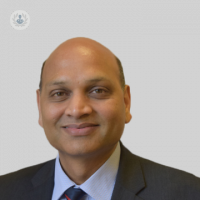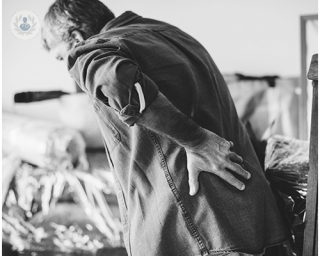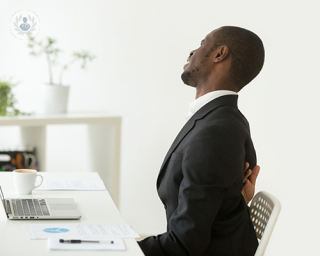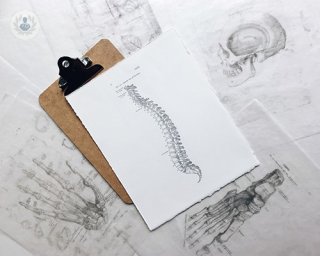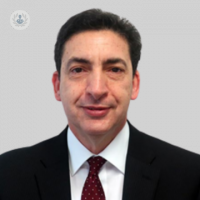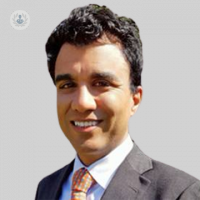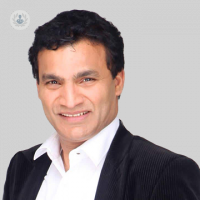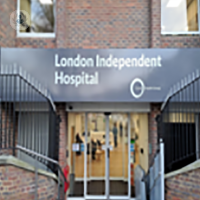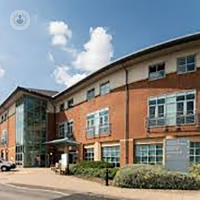Slipped disc
Mr Sanjay Dhiran - Orthopaedic surgery
Created on: 07-02-2019
Updated on: 04-27-2023
Edited by: Conor Dunworth
What is a slipped disc?
The spine or backbone is made up of segments of bone (vertebrae) separated with fibrocartilaginous discs, which provide flexibility and act as shock-absorbers.
A slipped disc is when one of these soft cushions of tissue pushes outwards. They are often painful, due to the fact that the spinal cord (part of the central nervous system) passes through the middle of them. This means that when a disc herniates (slips), it often puts pressure on nerves.
Slipped discs can occur in the cervical (neck) region, the thoracic (middle back) region, and the lumbar (lower back) region of the spine.
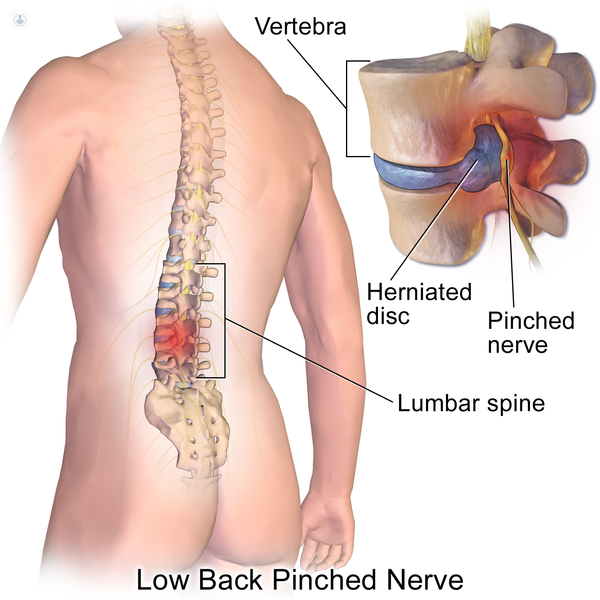
Prognosis of a slipped disc
In the majority of cases, a slipped disc will heal itself with rest, gentle exercise, and painkillers. It is advisable to see a doctor if you are in any pain or experiencing the symptoms listed below and follow their advice. In some cases, further treatment will be required.
Symptoms of a slipped disc
Symptoms of a herniated disc can vary – some people may experience severe problems due to the compression of nerves, while others may never even realise they have slipped a disc. Potential symptoms include:
- Low back pain
- Neck pain
- Difficulty straightening or bending the back
- Numbness or tingling in the back, shoulders, arms, hands, legs or feet
- Muscle weakness
- Sciatica (pressure on the sciatic nerve) – this may involve pain in the legs, hips, or buttocks.
What are the causes of a slipped disc?
Slipped discs can occur for a number of reasons, including:
- Ageing
- Straining during exercise
- Bad technique when lifting heavy objects
- Vibration caused by driving or operating machinery
- Inactivity and/or being overweight
Can a slipped disc be prevented?
The best preventative steps to take are:
- Stay fit and do regular exercise
- When lifting heavy objects, use a safe technique, i.e. not bending or twisting the back.
Treatments for a slipped disc
Depending on the severity of the slipped disc, the doctor may recommend:
- A stronger painkiller
- A muscle relaxant
- A steroid injection
- Physiotherapy
- Surgery (this is usually only considered if other measures have been ineffective and symptoms like numbness are getting worse)
Which type of specialist treats a slipped disc?
Orthopaedic surgeons, particularly those with a specialist interest in spinal surgery treat conditions of the spine, such as a slipped disc.
